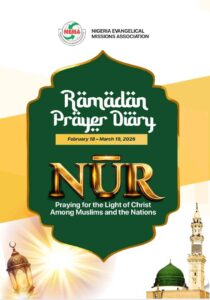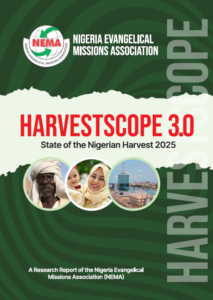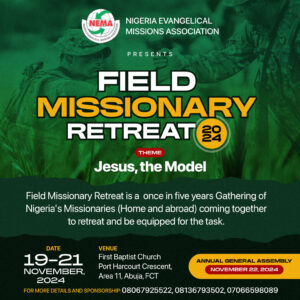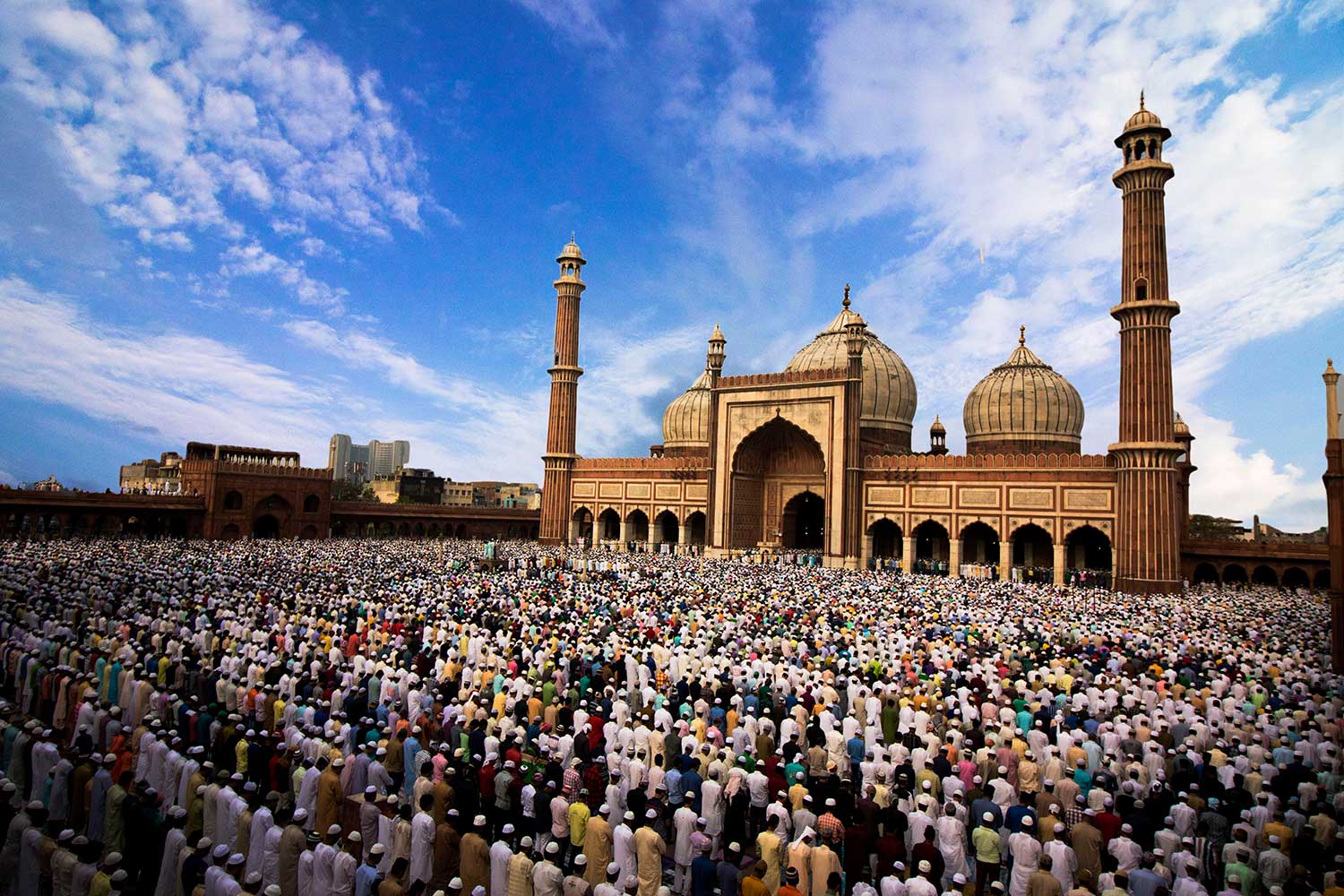
Summary: The Nigerian church has been engaged in cross-border and cross-cultural missions for more than 150 years. Since then, it has played an important and growing part of the global missions movement. And Nigerians are eager to play a bigger role in collaboration with global partners.
By Adeoluwa Felix Olanrewaju
Nigeria’s first contact with the gospel happened around the fourteenth to fifteenth century through Portuguese merchants in the present-day South-south region of the country. At that time, African Traditional Religion was prevalent, as was Islam, which arrived as far back as the eleventh and twelfth centuries. But it wasn’t until later that real gospel seeds would be planted and watered, and Africans played a major role.
As Rueben Ezemadu asserts, “Right from the cradle of Christianity in Nigeria, an indigene had played a pioneering role in the spread of the gospel.”[i] Almost every mission pioneering effort in Nigeria and within Africa had significant involvement from Nigerians or people of African descent.
The Beginning
The first was Thomas Birch Freeman, a missionary with the Methodist Missionary Society. He arrived in Badagry, Southwest Nigeria on September 24, 1842. While Freeman grew up in England, his father was an African freedman from the West Indies, and his mother was English.
As an adult, Freeman was compelled to answer God’s call to go to West Africa. After a first and then a second wife died, Freeman married Rebecca Morgan, an early Fante convert from Ghana. She became a “true helpmate … a woman of education and intelligence, a deeply committed Christian and a loyal church worker.”[ii] William de Graft followed Freeman continuing mission work in Badagry. De Graft trained John Martin, a Fante man from Ghana, who traveled east to pioneer mission work in Lagos, Nigeria.
Another early Nigerian pioneer was Samuel Ajayi Crowther. When he was around 12 years old, he was captured by slave raiders, but the British Royal Navy intercepted the ship where he had been taken. He was resettled in Sierra Leon. It was there he became a Christian and then later a missionary with the Church Missionary Society (CMS).
In 1841, he started his participation in the CMS Niger Expedition, exploring possibilities to use agriculture as an access ministry for mission in West Africa. It resulted in mission work beginning in both Niger and Nigeria. After settling in Nigeria, he translated the Bible into Yoruba and became the first African bishop of the Anglican church.
Another notable Nigerian is John C. Taylor. He began his ministry in Onitsha, (in present day Anambra State, Southeast Nigeria) in 1857 and eventually took the gospel to Bathurst (which is now Banjul, the capital of The Gambia in West Africa). At Taylor’s farewell service in Bathurst, an elder said, “Thank God! Is this word true, that our children, too, can go out like white men and preach the gospel? Lord send plenty of our children more.”[iii]
Pastors and clergy in Nigeria were not the only ones engaged in missions. For example, ordinary men and women led the Baptist Mission to the northern part of Nigeria. While exploring trade and commerce opportunities in the Muslim north, they spread the gospel and established churches.
Nigerians have also collaborated in mission with people from other places. In the Northern part of Nigeria, western mission organisation, like the Soudan Interior Mission (now Serving in Mission – SIM) and Sudan United Mission (SUM), depended on local Nigerian people to reach the Muslim north. This partnership was so effective that when certain Western missionaries left during the First World War, it had little or no impact on SUM’s mission in the northern Nigeria.
Lowry Maxwell comments that the SUM believed that “a consecrated African can reach his own people as no European can.”[iv] Additionally, he mentions “special efforts were made to encourage the native Christians to give their testimony and to conduct meetings … to make them less dependent on the foreign missionary.”[v]
The 1970s Revival
In the 1970s, God brought revival to Nigeria, especially among young men and women on university campuses. This gave birth to student fellowships such as the Christian Union, the Scripture Union, and the formation of the Christian Youth Corpers in 1973 (which later became Nigeria Christian Corpers’ Fellowship).
They focused on Bible study, prayer, and hospital ministry, and were involved in various evangelistic outreaches. Their activities brought more people to Christ. The National Youth Service Corps opened the channel for these vibrant and young graduates to spread the Christian faith in their various locations. They formed charismatic groups and those who traveled abroad took along their newfound faith.[vi]
This movement gave birth to indigenous missions organisations. Founded in 1975, Calvary Ministries (CAPRO) became the first indigenous non-denominational mission agency in Nigeria. Then the Christian Missionary Foundation (CMF) formed in 1982.
Both organizations trace their beginnings to the campus revival connected to the Christian Youth Corps. Over the last forty years, most mission organisations have drawn the bulk of their missionary recruits from students, graduates, and youth corps members.
Isaac Oyebamiji explains, “… Christian Youth Corps members to Kaduna State (Northwest Nigeria) conducted the Zaria City crusade of 25th December 1974. Bayo Famonure, then a Youth Corps member himself, was the unappointed leader of the team. CAPRO was to start a few months later.”[vii]
Many more nondenominational missions organisations that were established were significantly influenced by CAPRO and CMF especially in their commitment to faith missions. Nigerians were ready to both give and go for the gospel to reach everywhere.
It must also be noted that before nondenominational missions organizations existed, indigenous denominational missionary structures had already been founded, such as the Evangelical Missionary Society (EMS) of ECWA[viii] which began in 1948 and the Home and Foreign Missions Board (now Global Mission Board) of the Nigerian Baptist Convention established in 1953.
The Birth of a National Missions Network
As indigenous mission efforts progressed, the need to build synergy increased. This led to the formation of Africa’s first and largest national missions network in 1982: the Nigeria Evangelical Missions Association (NEMA). The idea of Africans in missions was not popular at that time, so the aim was to collaborate to mobilize the church in Nigeria to promote missionary efforts.[ix] This brought together indigenous denominational and non-denominational mission structures to maximize the advance of the church and emergence of indigenous missionary efforts towards finishing the task.
Responding to the rapid growth of the majority world church, the founders of NEMA wanted to see Nigerians to play an even more active role in global mission. In 1985, NEMA hosted the first World Evangelical Fellowship Missions Commission Consultation tagged in Jos, Nigeria (ICOM ’85).[x] Around 80 people attended representing countries including Ghana, Cameroon, Uganda, the United States, Canada, the United Kingdom, Australia, India, and a few countries in Latin America. The theme of the consultation was “Mobilising Indigenous Missions for the Final Harvest.”
At the event, Panya Baba, the founding chairman of NEMA, shared, “An era of new dimension in missions is evident in the 1980s. Never before has such a consultation been held in Africa. There is no doubt that ICOM has become a new chapter in African history of missions. It is a milestone towards what we expect to accomplish through missions in Africa in the future.”[xi] Baba continued, “If the whole world would be evangelised, then missionaries must be sent from every country to every corner of the world. The idea of sending countries and receiving countries is long over-due for a change.”[xii]
The whole Nigerian missions movement remains convinced that God is raising up missionaries from different places, including Nigeria, who should go everywhere. And while need remains in Nigeria, we understand and embrace the commitment to God’s global purpose.
At the same time, progress in sharing the gospel continues at home in tandem with increased global engagement. During ICOM ’85, there were 74 known unreached and unengaged peoples in Nigeria identified. Mission leaders responded to the challenge. In 2017, NEMA reviewed the 1985 list and found that 65% of the then identified unreached peoples not only exited the list, many of the converts from these groups are now a part of the Nigerian missions force. At the same time, our updated research revealed that 72 unreached peoples and 8 unengaged people groups still exist in Nigeria.
NEMA organized a national consultation and these groups were allotted to different denominations and mission agencies. The 8 unengaged groups were re-engaged within a year. Moreover, the confirmed list of unreached and least evangelized peoples in Nigeria is now down to 43.[xiii]
Several initiatives have also been taking in mobilizing the Nigerian church for the remaining harvest. For instance, Mission Awareness Conferences (MAC) were held in some strategic cities with hundreds and thousands of people in attendance. GOFEST is another of such initiatives targeted at mobilizing students and campus. The 1998 edition had a record of 10,300 students in attendance. Many of the fruits of these meetings are now serving on the frontiers or in mission support roles.
Vision 50:15
Realizing the huge Evangelical strength and advantage of Nigeria amongst countries in the 10 – 40 window, the leadership of NEMA launched the Vision 50:15 initiative in 2005. The vision was to mobilize 50,000 great commission workers. 15,000 of them would be trained, sent and supported go to 34 mostly Islamic countries beginning in the North of Nigeria to the Sahel region of Africa, the Horn of Africa, North Africa, Arabian Peninsula, and finally to the region around Jerusalem.
By 2020, 4,000 Nigerian missionaries were placed in 31 countries of the 34 targeted countries. Since the target has not yet been met, the initiative continues in what is now called Vision 50:15 Plus. This has taken place in the midst of sacrifices, persecution, martyrdom, all forms of hardships, obstacles, and oppositions. Nevertheless, we do not believe the Nigerian missions movement has yet fully expressed its mission potential.
Nigeria has around 105 million Christians. About half are Evangelicals. In relation to this, the 15,600 missionaries from NEMA’s 159 registered member agencies less than 0.03% percentage of evangelicals. We want to see 10% of Nigeria’s Evangelical population sent as missionaries. And as we see the continued rapid growth of the Nigerian church, we feel a burden to take more active leadership in the forefront of global mission.
Yet we also see that Nigerians can be found literally everywhere. This voluntary and involuntary going is another way God’s way of scattering his people for his global purpose. The Nigerian diaspora can also be mobilized for missions. As NEMA has considered strategies for the Vision 50:15 Plus initiative, we’ve determined that our goals can be better met by mobilizing Nigerian Christians in the diaspora who are already resident in the target countries.
Nigerian Missionary Advantages
Philip Jenkins rightly predicted that “The era of Western Christianity has passed within our lifetimes, and the day of Southern Christianity is dawning.”[xiv] Global South peoples in countries like Nigeria are sincerely seeking God, and not just religiosity.
It is quite ungracious and very insensitive to describe Nigerian, nay, African spirituality as a mile wide and an inch deep. That may be true of some individuals as it is on every continent. Yet Africa also has a significant movement of people who are committed to biblical discipleship with strong devotion to the study of the Word, prayer, fasting as well as engaging in spiritual warfare. Africa’s Christian population includes a vast number of Evangelicals. The Nigerian church, alone, has the largest number of Christians and Evangelicals in Africa and in the larger 10/40 window. This is already being leveraged for strategic missions mobilization and deployment.
People across Africa, including in Nigeria, also have advantages in culture and language acquisition. For instance, Nigerian missionaries can easily adapt in the Vision 50:15 Plus countries (10/40 window) because they often do not need to cross too many cultural barriers. The collectivist nature of Nigerian society also helps as many unreached and unengaged people groups have similar cultural contexts.
Because Nigerians live in a country with an even distribution of adherents to Christianity and Islam, and a number of followers of traditional religion, it is easier for them to build bridges with people of other faiths. Being multilingual also helps Nigerians to learn new languages.
Finally, Nigerian culture fosters a can do spirit that unleashes amazing creativity and flexibility to overcome challenges. When faced with a difficulty, a typical Nigerian response is “No problem.” In missions, this helps Nigerian missionaries adapt quickly, cope with uncertainties, access difficult terrain, and survive with minimal support.
Collaboration is the Future
Already, the Nigerian commitment to mission is influencing missional praxis, inspiring mission engagement, and significantly contributing to the growth of global Christianity. The Nigeria Evangelical Missions Association wants to maximize the potential within the Nigerian church as well as working alongside African (and global) national networks. For this to be effective, healthy partnerships need to be prioritized and honored.
Dean Carlson says, “healthy partnering requires a humility of heart that is more concerned with kingdom advance than organizational accolades.”[xv] Thus, doing missions polycentrically requires effective collaboration. The world can be transformed in Christ’s power when we unreservedly commit to working together in the spirit of mutual respect and unified purpose.
Old notions of Western church superiority and majority world church inferiority must be cast aside, so that we can learn from one another as peers. As commendable as the intercultural intelligence of Nigerian missionaries might be, we still need to be progressively incarnational both in cross-culture engagement as well as in relating with other mission networks.
The Nigerian church and missions movement has much to learn from other global mission participants. At the same time, it has much to share. When global mission partners respectfully ask for our help, this increases our commitment to participate. While the partnership of resources from the Western church is appreciated, this is a secondary need. What is most desired is a sincere invitation and welcome to participate as an equal collaborative partner.
As Nigerian missionaries take the gospel to the priority unreached and unengaged and to the West, they need the support of the existing church in mutual learning. We need to create a collaborative environment that is not subservient. Moreover, doing missions in a polycentric context means paths would frequently cross between the church of the global north and the global south. Therefore, taking positions of preferring one another as we collaborate will bring more sheaves and honor to the Lord of the harvest.

Adeoluwa Felix Olanrewaju (oadeoluwafelix@gmail.com) has a PhD in intercultural studies. He has been involved in cross-cultural church planting, discipleship, research, training, mobilization, and missions leadership in Nigeria, Benin, and Niger. He has served as the dean of academics at the Nigeria Evangelical Missionary Institute (NEMI) in Jos, Nigeria. He is currently the director of administration at the Nigeria Evangelical Missions Association (NEMA). He is married and blessed with children.
[i] Rueben Ezemadu, “Missionary Efforts in Africa: The Nigeria Case Study,” in Contemporary Issues in African Missions: Papers in Honour of Rev Dr Reuben E. Ezemadu, ed. Kayode Owojori (Ibadan: ACCLAIM, 2020), 60.
[ii] John Ferguson, Some Nigerian Church Founders (Ibadan: Daystar, 1971), 4.
[iii] Ezemadu, “Missionary Efforts,” 61.
[iv] J. Lowry Maxwell, Half a Century of Grace: A Jubilee History of the Sudan United Mission (London:1954), 216.
[v] Maxwell, Half a Century, 232.
[vi] Selome Igbekele Kuponu, “The Living Faith Church (Winners Chapel) Nigeria: Pentecostalism, Prosperity Gospel and Social Change in Nigeria,” a PhD Dissertation Submitted to the University of Bayreuth (July, 2007), 6.
[vii] Isaac Oyebamiji, Travail and Triumph: The Story of CAPRO (Jos: Tishbeth Publishers, 2012), 35–36.
[viii] Evangelical Church Winning All (ECWA) is a denomination founded when churches closely associated with SIM came together.
[ix] Peter Boma, Dotun Adeboye, Victor Idakwoji, Adeoluwa Olanrewaju and Musa Gaiya, eds., Nigeria Evangelical Missions Association (Jos: NEMA, 2022), 8.
[x] The International Missions Conference (ICOM ’85).
[xi] Panya Baba, introduction to The Final Harvest, ed. Niyi Gbade(Jos: NEMA, 1988), 1.
[xii] Baba, The Final Harvest, 1.
[xiii] This information is as provided by the Monitoring, Evaluation, Learning and Research Department of the Nigeria Evangelical Missions Association.
[xiv] Philip Jenkins, The Next Christendom: The Coming of Global Christianity (Oxford University Press, 2002), 3
[xv] Dean Carlson, “Cultivating Global Collaboration to Ehnance African Mission Efforts” in Contemporary Issues in African Missions: Papers in Honour of Rev Dr Reuben E. Ezemadu, ed. Kayode Owojori (Ibadan: ACCLAIM, 2020), 139.





No comment yet, add your voice below!